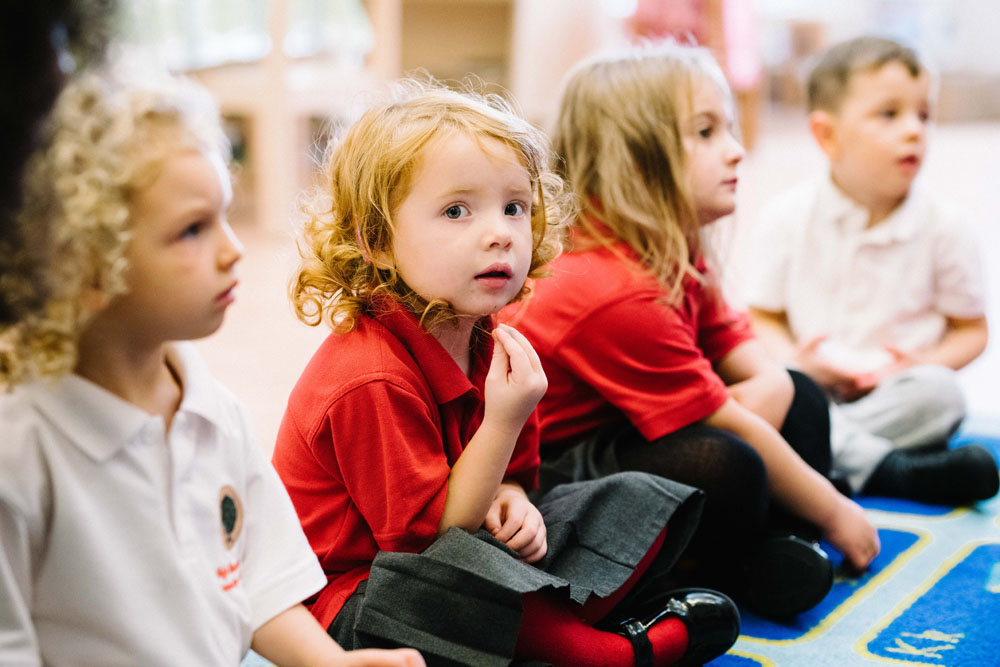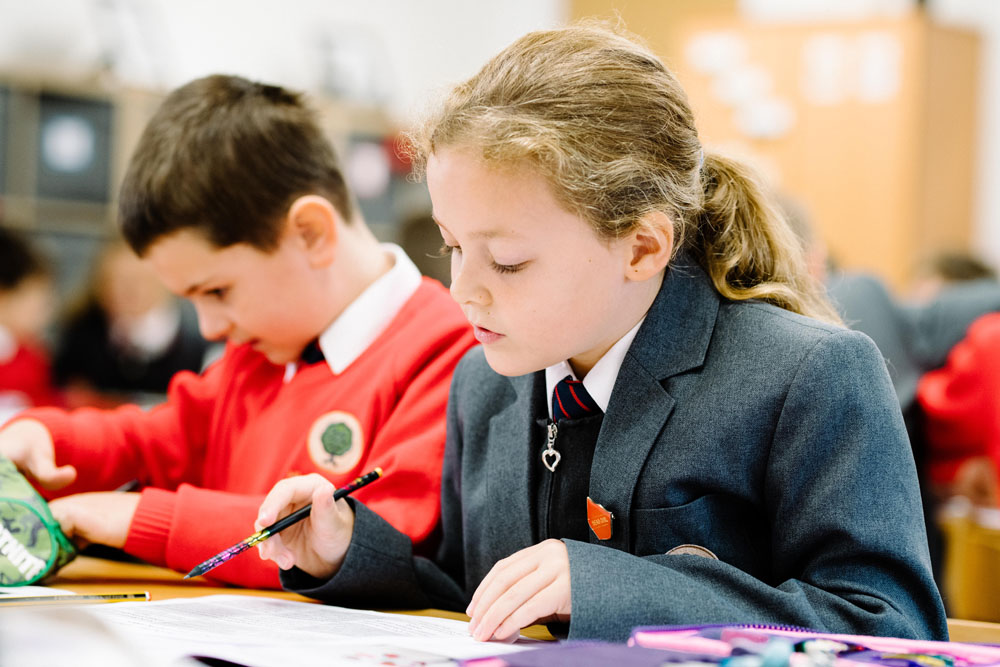Our Curriculum: Empowering Learners through metacognition
Curriculum Intent
At High Meadow, we are proud of our school curriculum and the opportunities it provides. It has been created collaboratively, with subject co-ordinators, informed teachers and senior leadership.
Our primary curriculum is designed to provide a rich and comprehensive educational experience that nurtures the intellectual, social, and emotional development of our students. Our curriculum is rooted in the latest research and best practices, and it is tailored to meet the needs and aspirations of our pupils.
Our intent is to enhance the quality of teaching and learning by delivering a carefully sequenced and coherent curriculum that focuses on essential concepts, knowledge, skills, and principles of each subject. Our curriculum is based on a clear vision for successful learning, incorporating the national curriculum within a broader framework that ensures coherence and progression.
At High Meadow Community School, we believe in fostering a rich and engaging curriculum that supports every child in becoming a confident and independent learner. Central to our approach is the integration of the 7 Steps to Metacognition, which structures our lessons and enhances our children's learning experiences.
Every lesson at High Meadow begins with retrieval practice, where children revisit prior knowledge to activate their understanding. This foundational step sets the stage for deeper learning.
In the initial phase of the lesson 'I Do', teachers model their own metacognitive thinking. By verbalising their thought processes—asking questions like, "What do I know about this topic?" and "What strategies have I used before?"—teachers provide children with a clear example of how to approach learning tasks effectively.
Following the modelling, we transition into the 'We Do' phase. Here, children engage in a mini-task alongside their teacher, allowing them to practice the strategies demonstrated. This collaborative approach encourages dialogue and reinforces their understanding as they work together.
As the lesson progresses, children move into the 'You Do' phase, where they are prepared for independent learning. This stage empowers them to apply what they have learnt, fostering confidence in their abilities as learners.
In each lesson, we provide children with either a challenge or an opportunity for reflection on their learning. This final step encourages children to think critically about their understanding and solidifies their learning experiences. It also provides teachers with valuable insights into each child's grasp of the content taught.
At High Meadow, our children not only understand what metacognition is but also actively use it as a tool for their development. They are equipped with the knowledge of how to plan, monitor, and evaluate their learning processes.
Tools for Independence
Children utilise the learning walls created during lessons to support their independence over the course of the week. These resources serve as reminders of the strategies and tools they can draw upon, reinforcing their ability to learn autonomously.
We revisit key ideas over time, drawing explicit connections between new content and core concepts and principles. We provide opportunities for students to apply their knowledge and skills to different contexts, helping them develop a deep understanding and the ability to transfer their learning across disciplines. We develop critical thinking, creativity, and problem-solving skills, while also ensuring a strong foundation in core subjects such as English, Mathematics, Science, and foundation subjects.
Furthermore, we recognize the importance of literacy in accessing the curriculum. Our curriculum includes explicit teaching of reading, writing, and vocabulary, specific to each subject area. We prioritise early reading, including systematic synthetic phonics, to ensure that students have the foundational skills necessary for success in all subjects. We also promote reading for pleasure and through various class reading approaches and exposure to high-quality texts.
Fluency is another key focus of our curriculum. We provide tasks that help students securely learn key ideas and use strategies such as retrieval and spaced practice to build automatic recall of crucial knowledge. We believe that developing fluency is essential for students to confidently engage with and apply their learning.
We strive to empower our students to thrive academically and become lifelong learners who are prepared for future success. The design of our curriculum provides our students with a rich and meaningful education that equips them with the knowledge, skills, and values they need to succeed in their academic and future, personal lives.
We believe that our wonderful curriculum makes High Meadow a great place to learn. Carefully selected teaching pedagogy ensures that all children, regardless of their strengths and differences, know that High Meadow is the place where they can contribute, where they can be heard, where they belong: growing together, every day, in every way.
At High Meadow Community School we believe that childhood should be a happy, investigative and enquiring time in our lives where there are no limits to curiosity and there is a thirst for new experiences and knowledge. Reflecting these beliefs, our curriculum is designed to:
- Be challenging, inspirational, thought provoking and empowering: We know that this helps children to become lifelong learners
- Be full of first hand learning experiences: We know that is how children learn best
- Be respectful of children’s prior learning: We will start from where the children are ‘at’
- Be equitable and inclusive: We will address disadvantage and provide equality of opportunity for all
- Be progressively developing children’s core skills and knowledge: We know that mastery of the curriculum is key
- Be research led and proven: We will base our teaching and learning on the EEF Teaching Toolkit recommendations alongside our creativity
- Be language rich: We recognise that language and reading have a powerful impact on everything
Our coherently planned and sequenced curriculum is designed to provide cumulatively sufficient knowledge and skills for future learning and employment. By empowering children at High Meadow Community School to take charge of their learning journey, through the structured approach of the 7 Steps to Metacognition, we nurture a culture of self-awareness and confidence, ensuring that every child is equipped with the skills they need to thrive both in school and beyond.
Furthermore, our curriculum intentions are underpinned by a Learning Culture which empowers children to become responsible for their own learning.
These are called our Learning Powers!
Our Learning Powers
- We are kind
We respect and value all living things - We are curious
We always want to know more - We are ambitious
We want to be the best ‘we’ - We are creative
Problem solving needs creative minds - We are resilient
Making mistakes helps us learn new things - We are hard working
We take pride in all we do - We are independent
It helps us be proud of our achievements - We are brave
We take safe risks
Implementation
Maths At High Meadow Community School, we use the Mastery Flow Model to teach mathematics, ensuring that all children develop a deep understanding of mathematical concepts. This approach focuses on building a solid foundation through a structured progression of learning, where each child is encouraged to master a topic before moving on to the next. By emphasising conceptual understanding alongside procedural fluency, we enable our children to apply their knowledge confidently in various contexts.
The Mastery Flow Model promotes a positive learning environment where children can explore, question, and engage with mathematics at their own pace, fostering a love for the subject and preparing them for future challenges.
English Hub In order to ensure that we continually evaluate our English Curriculum, and keep up to date with the latest research, we engage with high quality professional development training through the English Hub.
Storytelling We are an internationally accredited Storytelling school. We use this oral strategy to develop children’s reading and writing skills.
Forest Schools At High Meadow Community School, we believe in the transformative power of outdoor learning, which is why all children, from Nursery to Year 6, participate in a weekly Forest School session. This unique educational approach not only enhances children's learning experiences but also fosters their personal development in numerous ways. We are committed to providing our children with rich, diverse experiences that prepare them for the next stages of their learning journey. Our Forest School programme is an integral part of this commitment, ensuring that every child has the opportunity to thrive in a nurturing and stimulating environment.

Personal Development
To ensure that provide
- Cross curricular topics allowing links to be made across all learning
- Inspiration Days and subject specific learning weeks including: Take One Picture, Maths Week, Arts Week, Dress to Express and much more
- Trips out of school, local and further afield
- Visitors including artists, people from a range of faiths, NSPCC, etc
Learning to Learn Weeks
At the start of each new terms we dedicate time to 'Learning to Learn'. During these weeks, teachers address the needs of High Meadow pupils by:
- Creating a calm, collaborative classroom environment
- Teaching children to safeguard themselves through Protective Behaviour work
- Teaching, through practice, and whole-school 'Relentless Routines'
- Reinforcing our ethos, rules and values
- Teaching behaviour expectations
- Promoting our High Meadow reading culture
- Setting the culture and boundaries of PSHE routines
- Setting expectations for presentation in books including handwriting
- Conducting a range of 'Assessment for Learning' activities to inform planning of topics in response to need and interests of class
- Teaching of some Maths objectives to allow for effective retrieval practice throughout the year
- Teaching Learning Behaviours and High Meadow Language for Learning
The children also review and set their learning targets during this time.
30 Memorable Moments
During their time at High Meadow, every child will experience one of our memorable moments. This may be linked to a curriculum area, or a 'one off' moment.
- Learn how to play a musical instrument
- Participate in regular Forest School activities
- Interact and learn from real authors and poets
- Grow, tend and nurture a range of plants
- Actively recycle and re-use waste
- Take part in live performances
- Experience live music and theatre
- Visit a Mosque, Temple and Church
- Meet and welcome people of different faiths and beliefs
- Have a piece of artwork displayed
- Participate in a variety of sporting activities
- Organise and independently attend regular fundraising events for school
- Be immersed in stories and books at all times
- Engage in a range of dressing up activities
- Participate in an activity by the RSC
- Visit an Art Gallery
- Visit a farm
- Participate in an outdoor adventurous activity
- Help organise an event to raise money for charity
- Learn how to stay road and fire safe
- Learn basic First Aid
- Interact and learn from members of our local community
- Interact with and program robots
- Learn how to practice ‘mindfulness’
- Celebrate National Festivals
- Receive a new story book at least twice a year
- Create memorable moments for our mums, dads and carers
- Work with a variety of artists
- Watch chicks hatch out of eggs and care for them
- Visit historical buildings

Further information about the National Curriculum can be accessed below.
National Curriculum website